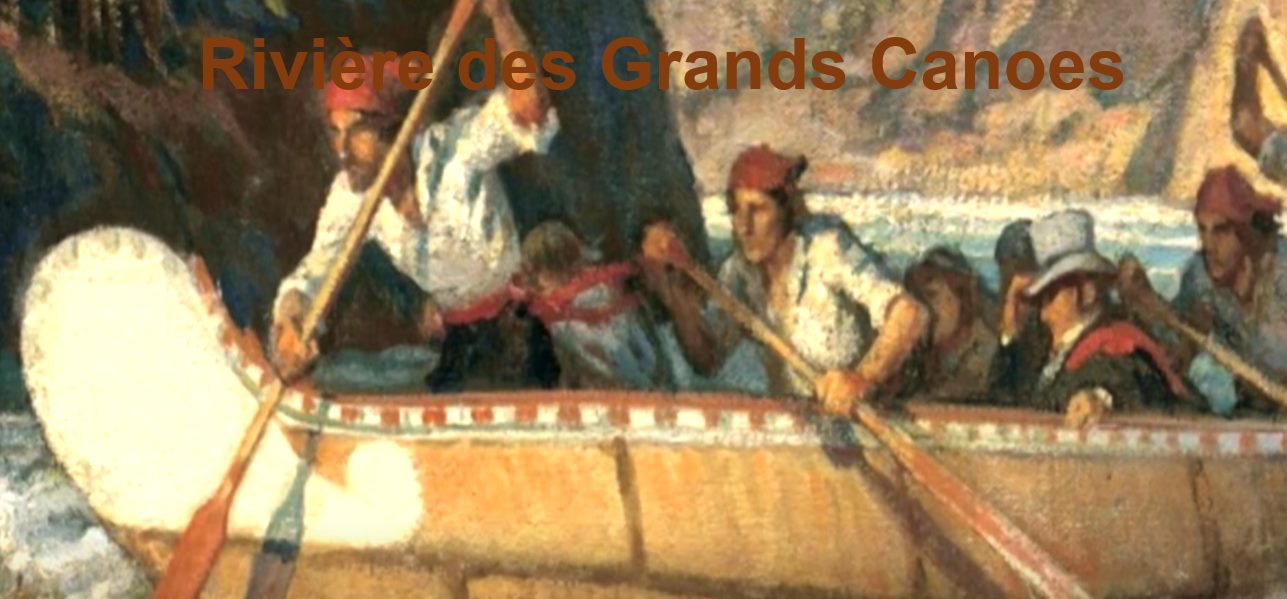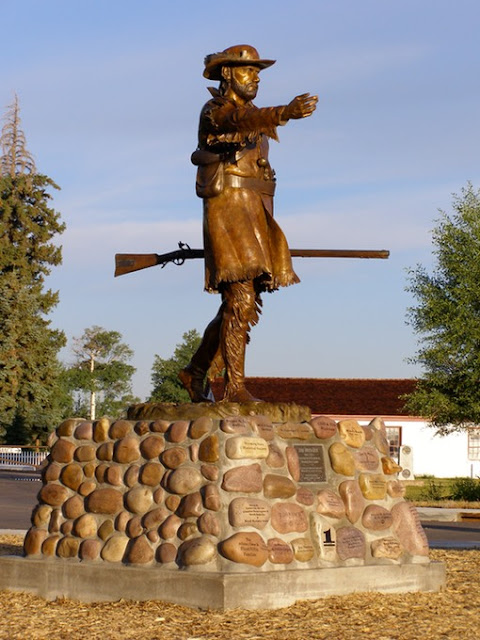"C'est l'aviron"
C'est l'aviron , also know by the first words of the song as "M'en Revenant de la Jolie Rochelle" - an iconic voyager song. French trappers were some of the first explorers who journeyed up the Missouri River, and no doubt their songs echoed off the river bluffs as they paddled up the river in search of fur, and down again with the bounty of their work... A great rendition of this song and a great slide show, depicting French trappers in Canada, but no doubt also sung on the Rivière des Grands Canoes.
French Lyrics:
M'en revenant de la jolie Rochelle,
M'en revenant de la jolie Rochelle,
J'ai rencontré trois jolies demoiselles.
C'est l'aviron qui nous mène, qui nous mène,
C'est l'aviron qui nous mène en haut.
J'ai rencontré trois jolies demoiselles
J'ai rencontré trois jolies demoiselles
J'ai point choisi, mais j'ai pris la plus belle.
J'ai point choisi, mais j'ai pris la plus belle
J'ai point choisi, mais j'ai pris la plus belle
J'l'y fis monter derrièr' moi, sur ma selle.
J'l'y fis monter derrièr' moi, sur ma selle
J'l'y fis monter derrièr' moi, sur ma selle
J'y fis cent lieues sans parler avec elle.
J'y fis cent lieues sans parler avec elle
J'y fis cent lieues sans parler avec elle
Au bout d'cent lieues, ell' me d'mandit à boire.
Au bout d'cent lieues, ell' me…
English Version:
Riding along the road to Rochelle City,
I met three girls, and all of them were pretty
By chance I chose the one who was the beauty,
Pull on the oars as we roll along together,
Pull on the oars as we glide along.
Lifted her up so she could ride beside me.
Lifted her up so she could ride beside me.
Not a word we spoke as we rode along together,
Pull on the oars as we roll along together,
Pull on the oars as we glide along.
After a while, she said, “I’d like a drink, sir.”
After a while, she said, “I’d like a drink, sir.”
But she’d not drink the water from the fountain.
Pull on the oars as we roll along together,
Pull on the oars as we glide along.
So on we rode, to find her home and father,
So on we rode, to find her home and father,
When we got there, she drank… but not of water.
Pull on the oars as we roll along together,
Pull on the oars as we glide along.
Toasted her father and her dear old mother
Toasted her father and her dear old mother
Toasted then....... her sister and her brother.
Pull on the oars as we roll along together,
Pull on the oars as we glide along.
She toasted again her father and her mother,
She toasted again her her sister and her brother,
Turning to me, she toasted her own lover.
Pull on the oars as we roll along together,
Pull on the oars as we glide along.








